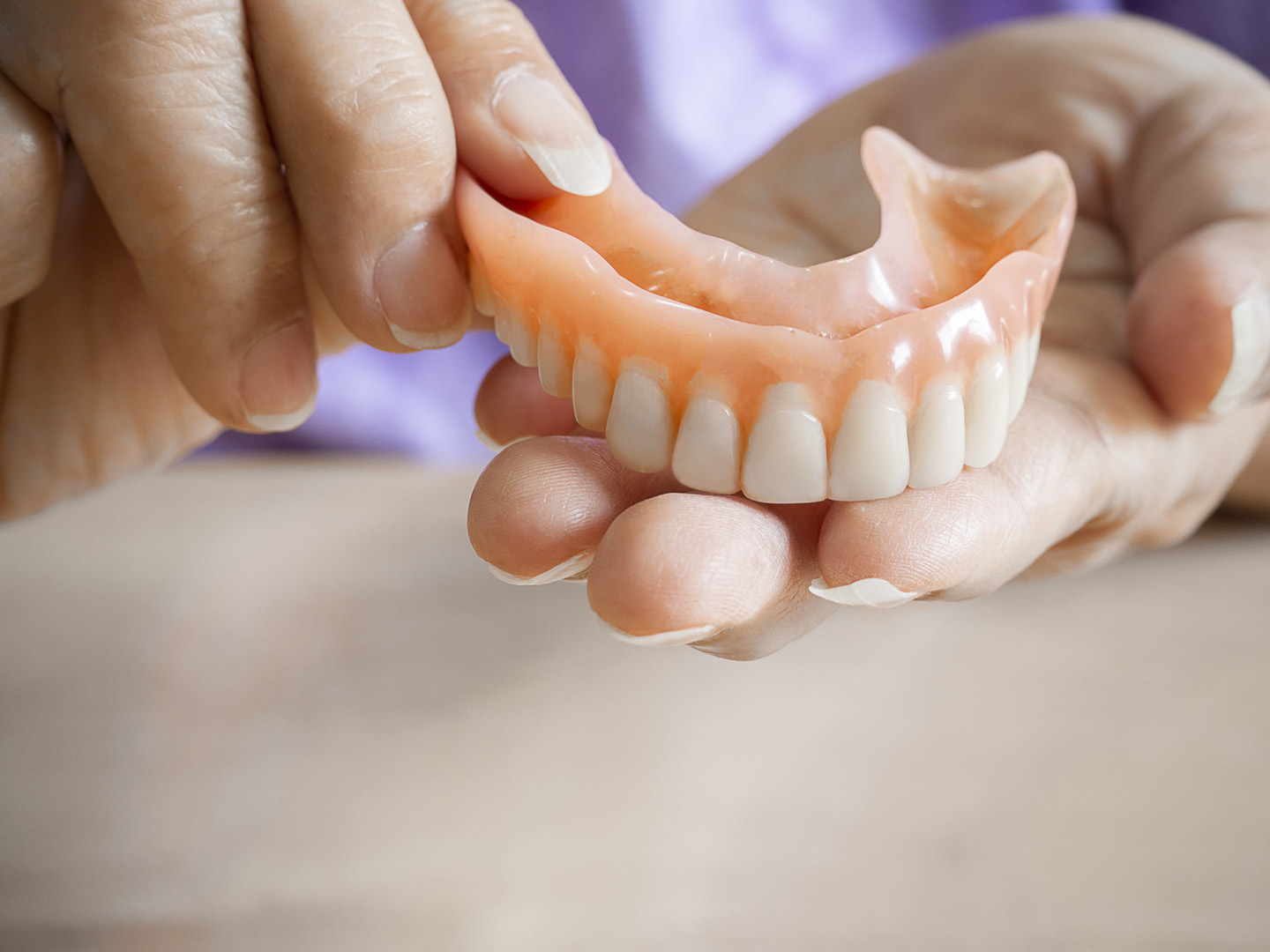How Long Do Dentures Last? Factors, Care, and Maintenance

Introduction
If you’re wondering “how long do dentures last?” you’re not alone. Many individuals who use dentures as a solution for missing teeth are curious about the durability of these prosthetic devices.
We shall extensively explore a range of elements that influence the duration of denture durability, encompassing aspects such as their categorization, the diligence of their upkeep, and the meticulousness of maintenance practices.
Types of Dentures
Full Dentures: Full dentures are designed to replace an entire set of teeth in either the upper or lower jaw. Crafted using high-quality materials, these dentures are made to withstand regular chewing and speaking. On average, well-maintained full dentures can last anywhere from 5 to 10 years. However, factors like wear and tear, changes in oral structure, and proper maintenance can influence their longevity.
Partial Dentures: Partial dentures are recommended when only a few teeth need replacement. They’re attached to existing teeth using metal clasps or precision attachments. The lifespan of partial dentures is similar to that of full dentures, ranging from 5 to 10 years. Regular dental check-ups, adjustments, and proper care play a pivotal role in extending their durability.
Factors Influencing Denture Longevity
Material Quality: Dentures are typically crafted from materials like acrylic, porcelain, and metal. High-quality materials tend to have a longer lifespan due to their durability and resistance to staining, chipping, and breaking.
Oral Care and Hygiene: Proper oral care doesn’t stop when you get dentures. Regularly cleaning your dentures with a soft brush and mild denture cleaner helps prevent buildup of plaque, stains, and bad odors. Additionally, maintaining good oral hygiene for your natural gums and any remaining teeth is crucial for overall oral health.
Diet and Eating Habits: While modern dentures are designed to withstand the forces of chewing, it’s wise to avoid overly hard or sticky foods that could potentially damage them. Cutting your food into smaller pieces and chewing evenly on both sides of the mouth can prolong the life of your dentures.
Regular Dental Check-ups: Visiting your dentist for regular check-ups is essential. They can identify any changes in your oral structure, make necessary adjustments to your dentures, and provide guidance on maintaining their integrity.
Extending Denture Longevity
Proper Handling: Handle your dentures with care, especially during cleaning. Hold them over a soft towel or basin of water to prevent breakage if accidentally dropped.
Overnight Soaking: Remove your dentures before bed and place them in a denture soaking solution or water. This prevents them from drying out, which can cause warping.
Avoid Hot Water: Exposing your dentures to hot water can distort their shape. Stick to lukewarm water for cleaning and soaking.
Professional Maintenance: Visit your dentist for routine dental check-ups and adjustments. Ill-fitting dentures can cause discomfort and accelerate wear.
Signs It’s Time for Replacement
Visible Wear and Tear: Cracks, chips, and visible signs of damage indicate that your dentures might be nearing the end of their lifespan.
Difficulty Chewing or Speaking: If you’re experiencing difficulties with everyday activities like chewing or speaking, it could be a sign that your dentures need replacement or adjustment.
Changes in Fit: If your dentures become loose, it’s a sign that your oral structure has changed, and you may need a new set of dentures to ensure a proper fit.
Gum Irritation or Discomfort: Persistent gum irritation or discomfort can indicate that your dentures are no longer fitting correctly and should be evaluated by a dental professional.
FAQs
How long do permanent dentures last?
Permanent dentures typically have a lifespan of 5 to 10 years when properly cared for. Regular maintenance and check-ups can help extend their longevity.
Can you wear dentures permanently?
While not truly permanent, dentures can be worn long-term. However, they might need adjustments or replacement over time due to changes in oral structure.
Can dentures last 30 years?
Dentures generally don’t last for 30 years. Their typical lifespan ranges from 5 to 10 years, depending on factors such as material quality and maintenance.
Do the teeth on dentures wear out?
Yes, the teeth on dentures can wear out over time due to regular use. Chewing, grinding, and general wear can lead to the need for tooth replacement or denture adjustments.
Can you live a normal life with dentures?
Absolutely, you can lead a normal life with dentures. Modern dentures are designed for improved comfort and function, allowing you to eat, speak, and smile confidently.
Can dentures be permanently glued in?
Dentures can be semi-permanently affixed using dental implants, a procedure known as implant-supported dentures. This provides greater stability and reduces movement.
What are fake permanent teeth called?
Fake permanent teeth are referred to as “implant-supported dentures.” These are prosthetic teeth anchored securely to dental implants for enhanced stability.
Are dentures better than bad teeth?
Dentures can offer better oral function and aesthetics than severely damaged or deteriorated natural teeth. They restore a more functional bite and appearance.
What are permanent dentures called?
Permanent dentures are often called “implant dentures” or “implant-supported dentures.” They are secured in place using dental implants for long-lasting stability.
Conclusion
In conclusion, the longevity of dentures depends on a combination of factors, including the type of dentures, material quality, oral care, eating habits, and regular maintenance. By following proper care practices, visiting your dentist regularly, and being attentive to signs of wear and discomfort, you can ensure that your dentures serve you well for years to come.



